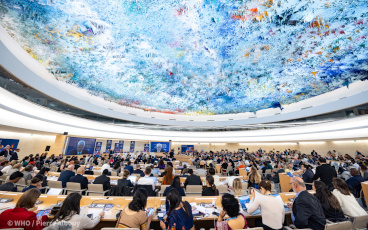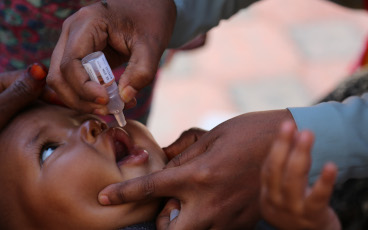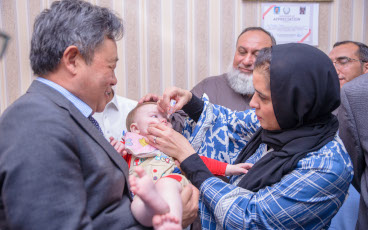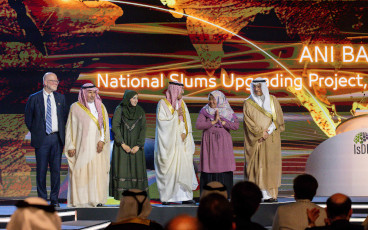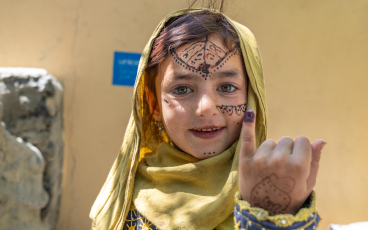Global health leaders urge world to be razor-sharp in focus to finish polio once and for all
At WHO Executive Board, experts discuss concrete ways to tackle last remaining polio strong-holds
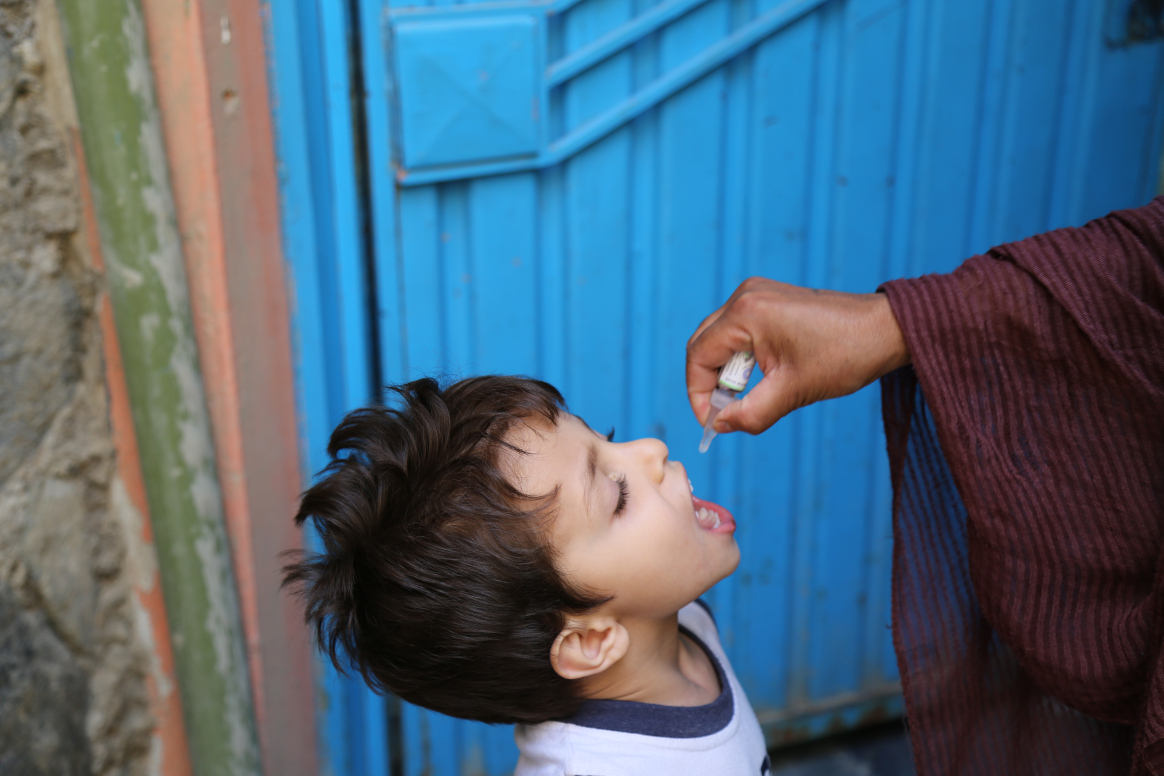
3 February 2023, Geneva, Switzerland – At this week’s WHO Executive Board in Geneva, Switzerland, global health and policy experts urged a razor-sharp focus on finishing polio in the remaining highest-burden areas, from where the virus would continue to spread if given the chance.
In his opening address to the Executive Board, WHO Director-General Dr Tedros Adhanom Ghebreyesus noted that no wild poliovirus cases had been reported anywhere since September 2022, and commended support for this effort globally, including through the pledging of US$2.6 billion to the effort in October.
Experts noted the unique window of opportunity presenting itself to achieve success in 2023, the target year for stopping all remaining poliovirus transmission globally. They also provided guidance to develop a new vision for polio transition that will go beyond 2023, supported by tailored regional action plans to drive country progress.
Endemic wild poliovirus transmission is now limited to geographically-restricted areas of just two countries: Pakistan and Afghanistan. Intensified efforts in both countries have resulted in a historically-low number of biologically-distinct virus lineages remaining in circulation. Individual virus lineages are being successfully knocked out, demonstrating the effectiveness of strategies. Commenting on this current trend, Regional Director for WHO’s Eastern Mediterranean Dr Ahmed Al-Mandhari said: “Never have we looked so hard for the virus and found so little of it.”
Poliovirus transmission, either due to wild poliovirus or circulating vaccine-derived poliovirus, is now primarily affecting just seven subnational geographic areas, which together now account for 90% of all new polio cases worldwide. These “most consequential geographies” share certain key programmatic characteristics: they are home to some of the largest populations of “zero-dose” children, in other words, children who are either un- or under-vaccinated, and are affected by broader humanitarian, complex emergencies.
The overriding programmatic goal in particular in the first half of 2023 must be: to reach the remaining zero-dose children in each of these geographies by adapting operations to the nature of the complex humanitarian emergencies in each of these settings. This means operating effectively within the broader humanitarian context. It means working with broader humanitarian partners, to deliver polio vaccine alongside other interventions, in the most culturally-relevant and appropriate manner.
The Board noted of course the re-emergence of polio in the past year in previously polio-free areas, and commended local public health authorities for successfully managing these events. But more than anything, these events are a stark reminder of what would occur if we did not achieve global eradication – a global resurgence of the disease. Within that context, experts urged countries not to lose sight of the need to plan for securing a lasting polio-free world, including by fully implementing containment activities.
The meeting also noted that the capacities developed to eradicate polio underpin the health system in many places. As we move towards eradication, we must ensure that this expertise is not lost, and is instead integrated to strengthen national health systems, which are the backbone to prevent a future resurgence of polio. In 2022, ‘proof of concept’ was demonstrated, through the successful transition of over 50 polio-free countries out of Global Polio Eradication Initiative support. In these countries, the expertise and tools of the eradication programme have been repurposed to support essential immunization, primary health care, emergency preparedness and resilience and response capacities. The guidance provided by Member States at the Executive Board will be instrumental to shape the next stage of polio transition, through the development of a new global vision, guided by tailored action plans at the regional level, to ensure that transition efforts are fully aligned with global, regional and national health priorities.
For both polio eradication and transition, success depends on continued political and financial resources, and experts appreciate the tremendous show of support by the international development community demonstrated in the last quarter of 2022, including through the pledging of an additional US$2.6 billion in Berlin, Germany, in October 2022 at the World Health Summit, to the polio eradication effort. And while more resources must still be mobilized, in that context, the meeting especially appreciated the efforts of Rotary International, for their ongoing work in helping secure both public and civil society commitment to this effort. Speaking on behalf of Rotarians worldwide, Judith Diment MBE, Chair of the Polio Advocacy Task Force, said: “ Rotary proudly joined donors in Berlin to collectively pledge more than half of the funds needed for the GPEI’s strategy. We urge further investment by all sectors to overcome challenges and sustain these gains for future years.”
Dr Tedros, in closing the polio discussion, addressed the assembled delegates: “We are in a much better situation now than we were previously. But the last mile is the hardest. There can be no room for complacency. Now is actually the moment to double down on our efforts. Let’s continue to push on.”
In conclusion: there is a very real window of opportunity for success this year. But this window will not remain open for long. The virus will again gain in strength. 2023 is our chance. Let us take it. Let us keep the focus on our collective and clear objectives: reaching zero dose children in the most consequential geographies, and taking steps towards a sustainable transition, to ensure that a polio-free world, once achieved, stays that way. We all have a role to play in achieving this. We have a collective responsibility.
Experts urged therefore never to get distracted from that focus. If we are razor-sharp in our focus, success will follow.



